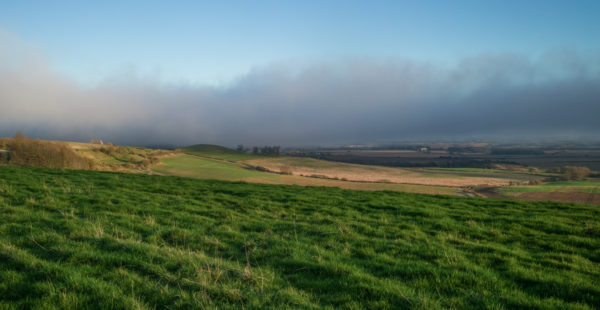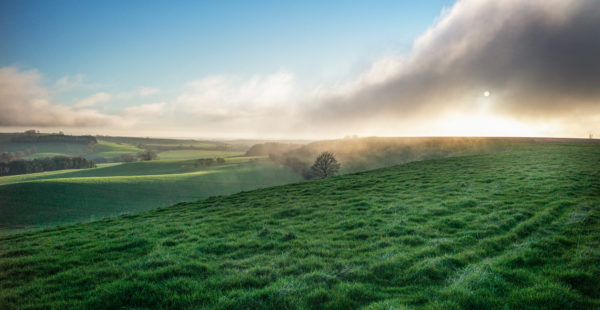A Week on the Estate: Record Rain, Spring Tours & Pete’s Walks
Last week’s unseasonal chill has relented and May arrived with a welcome burst of warm sunshine. At the time of writing, Friday will see a band of heavy rain from the continent sweeping across our region heading west, but the rest of the Bank Holiday weekend is set fair with a temperature range of 17C-6C.
We’re hoping for a fine late spring as we prepare for to play our part in the Lincolnshire Wolds Outdoor Festival. Read on for a chat with Pete Staves about wine-tasting, butterfly-hunting, bird-watching, slow-walking and all the brand-new and ever-popular treats we have in store for our countryside-loving friends, followers and readers.
Staying with the weather for now, Paul and our hard-working contractors have been making the best of challenging conditions out on the land. The Met Office reports that an average of 1,695.9mm of rain fell on the UK between October 2022 and March 2024. This makes the last 18 months the soggiest since records began in 1836.
We’ve also had the wettest spring in generations, making the prime planting season tricky. In the last week of April, our team were pictured loading organic Ladum spring wheat seed for the 6m drills and cracking on with the drilling long into the night to make the best of benign weather. When those photos were taken, two fields due to be drilled with spring barley were still simply too wet. Other fields have fared better; we never expected to be so chuffed to see dust in the air when we set to work.
20th-century agricultural methods and the global marketplace have made food shortages a distant memory for those of us lucky enough to live in developed economies. Our ancestors, however, would have experienced shortages and famine following bouts of extreme weather and there is an echo of this in recent statistics. Nationwide, the production of wheat, oilseed rape and winter barley is currently down by 15%, 28% and 22% respectively compared to this time four years ago.
We salute farmers up and down the land working hard to feed the nation while grappling with a topsy-turvy climate. We know how hard it’s been and we’re grateful to the Estate team for making the best of things here in the wonderful Wolds.
There’s still plenty of good news out there. Our regenerative approach gives us a vibrant soil biome and a more resilient farming landscape. Soil that teems with viral, bacterial and insect life can support plant and animal life season after season while absorbing carbon, soaking up heavy rain and resisting wind erosion during droughts.
When the sun did put his hat on and visit us this week, Paul Barnes was pictured out and about counting plants and sampling soil for the Pulse PEP project, which explores the benefits of fixing nitrates with leguminous crops and sharing know-how between farmers. Paul also shared a bonny view of our young vineyard looking continental under a blue sky. If you’d like to take a tour of our vineyard and sample wines made with varieties similar to those we’ve planted, read on.







